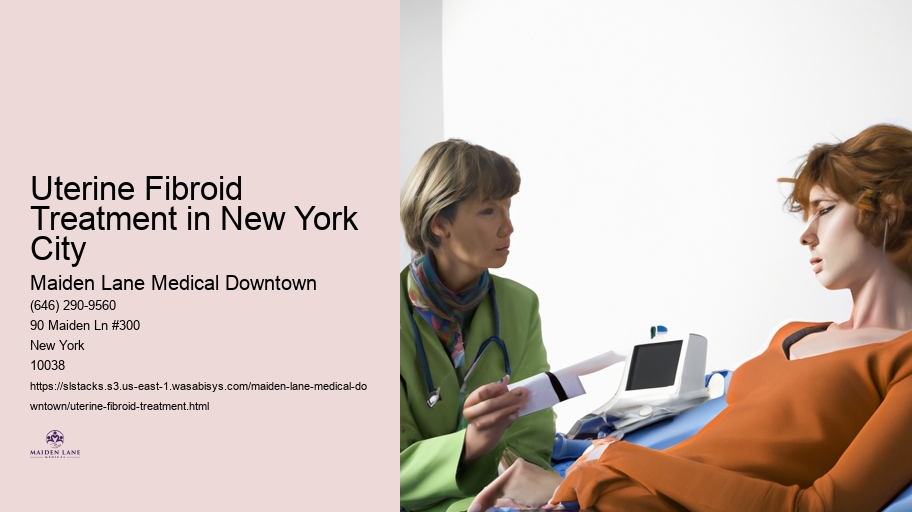
Uterine Fibroid Treatment in New York City
Uterine Artery Embolization
Uterine fibroids, a common condition affecting many women, can cause discomfort and interfere with daily life. Seeking appropriate treatment is crucial to alleviate symptoms and improve overall well-being. In the bustling city of New York, there is one medical center that stands out for its expertise and dedication to providing top-notch care for uterine fibroids: Maiden Lane Medical Downtown. With a team of highly skilled specialists and state-of-the-art facilities, Maiden Lane Medical Downtown offers a comprehensive range of treatment options tailored to meet the unique needs of each patient. But what sets them apart? Stay tuned to discover the innovative and effective solutions they offer for uterine fibroid treatment, making a tangible difference in the lives of countless women in New York City.
